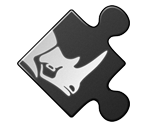Overview
One of the nice features of other scripting languages, such as Perl, LISP, and Python is what is called an associative array. A n associative array differs from a “normal” array in one major way: rather than being indexed numerically (i.e. 0, 1, 2, 3, …), it is indexed by a key, or an English-like word. VBScript has something very similar to an associative array. This object is called the Dictionary object. The VBScript Dictionary object provides an item indexing facility. Dictionaries are part of Microsoft’s Script Runtime Library.
The Dictionary object is used to hold a set of data values in the form of (key, item) pairs. A dictionary is sometimes called an associative array because it associates a key with an item. The keys behave in a way similar to indices in an array, except that array indices are numeric and keys are arbitrary strings. Each key in a single Dictionary object must be unique.
Dictionaries are frequently used when some items need to be stored and recovered by name. For example, a dictionary can hold all the environment variables defined by the system or all the values associated with a registry key. However, a dictionary can only store one item for each key value. That is, dictionary keys must all be unique.
Creating Dictionaries
To construct an instance of a dictionary object, just use the following lines of code:
Dim objDictionary
Set objDictionary = CreateObject("Scripting.Dictionary")
Dictionary objects have one property that should be set before any data values are stored in the dictionary. There are two modes for the .CompareMode property which control how individual keys are compared. If the mode is vbBinaryCompare (the default), upper and lower case letters in keys are considered distinct. If the mode is vbTextCompare, upper and lower case letters in keys are considered identical. This means that a Dictionary object in binary mode can contain two keys “Key” and “key”, whereas these would be considered the same key in text mode.
Adding Values
To add a value to a Dictionary, use the .Add method. For example:
Dim objDictionary
Set objDictionary = CreateObject("Scripting.Dictionary")
objDictionary.CompareMode = vbTextCompare
objDictionary.Add "Pastrami", "Great"
objDictionary.Add "Roast Beef", "OK on Sunday"
objDictionary.Add "Salami", "Not so good"
The first argument to the .Add method is the key value and the second argument is the item value. The key is similar to the index in a numerically-based, indexed array, and the item is the value at that index. There is no limit to the number of values that can be added to a dictionary (within the bounds of physical memory).
Removing Values
To remove a value from a dictionary, use the .Remove method and specify the key to remove. For example:
objDictionary.Remove "Salami"
To remove all values and clear the dictionary, use the .RemoveAll method.
Counting Values
Use the .Count property to obtain a count of values in the dictionary.
Get Values for Key
The .Exists method returns True if the specified key exists within the dictionary. For example:
If objDictionary.Exists("Pastrami") Then Rhino.Print "Pastrami is available today."
To retrieve the item value for a given key, use the .Item property. This is the default property for a Dictionary object. For example:
If objDictionary.Exists("Salami") Then Rhino.Print objDictionary("Salami")
The Rhino.Print statement displays the item value stored in the dictionary for the "Salami" key. Use the .Key property to change the key value for a given key. For example:
objDictionary.Key("Salami") = "Italian Salami"
The .Keys and .Items methods return an array containing all the keys or items from the dictionary. For example:
aMeats = oDict.Keys
aComments = oDict.Items
Sorting Dictionaries
On occasion, it may be important to sort your dictionary. You can sort a dictionary by using the following function…
' Description:
' Sorts a dictionary by either key or item
' Parameters:
' objDict - the dictionary to sort
' intSort - the field to sort (1=key, 2=item)
' Returns:
' A dictionary sorted by intSort
'
Function SortDictionary(objDict, intSort)
' declare constants
Const dictKey = 1
Const dictItem = 2
' declare our variables
Dim strDict()
Dim objKey
Dim strKey,strItem
Dim X,Y,Z
' get the dictionary count
Z = objDict.Count
' we need more than one item to warrant sorting
If Z > 1 Then
' create an array to store dictionary information
ReDim strDict(Z,2)
X = 0
' populate the string array
For Each objKey In objDict
strDict(X,dictKey) = CStr(objKey)
strDict(X,dictItem) = CStr(objDict(objKey))
X = X + 1
Next
' perform a a shell sort of the string array
For X = 0 To (Z - 2)
For Y = X To (Z - 1)
If StrComp(strDict(X,intSort),strDict(Y,intSort),vbTextCompare) > 0 Then
strKey = strDict(X,dictKey)
strItem = strDict(X,dictItem)
strDict(X,dictKey) = strDict(Y,dictKey)
strDict(X,dictItem) = strDict(Y,dictItem)
strDict(Y,dictKey) = strKey
strDict(Y,dictItem) = strItem
End If
Next
Next
' erase the contents of the dictionary object
objDict.RemoveAll
' repopulate the dictionary with the sorted information
For X = 0 To (Z - 1)
objDict.Add strDict(X,dictKey), strDict(X,dictItem)
Next
End If
End Function
The Dictionary object is not there to replace the array, but there are certainly times when it makes more sense to index your array using English-like terms as opposed to numerical values.

